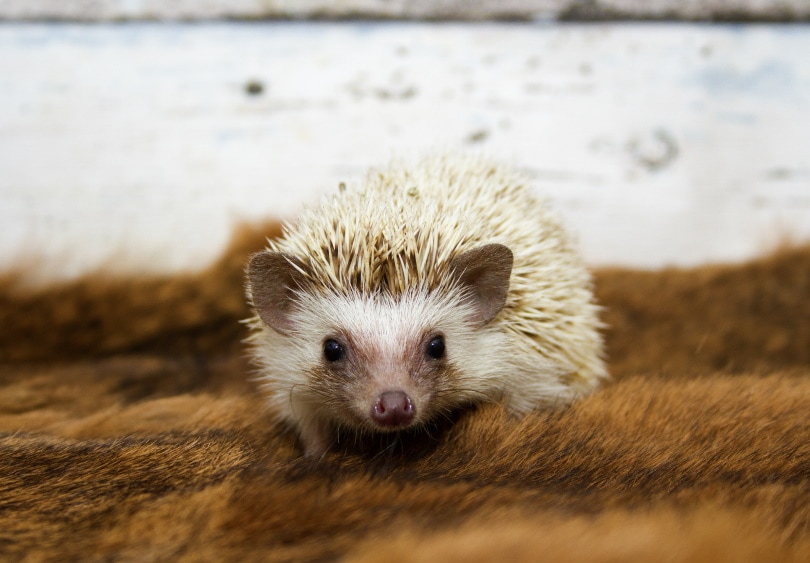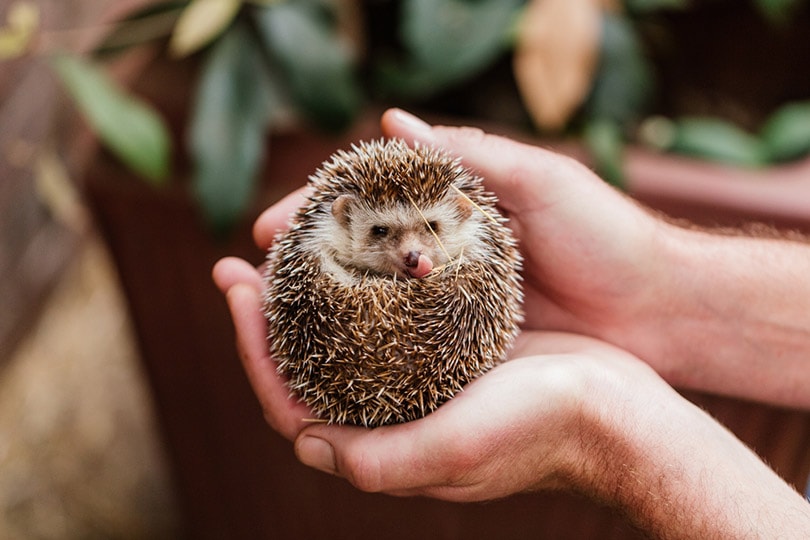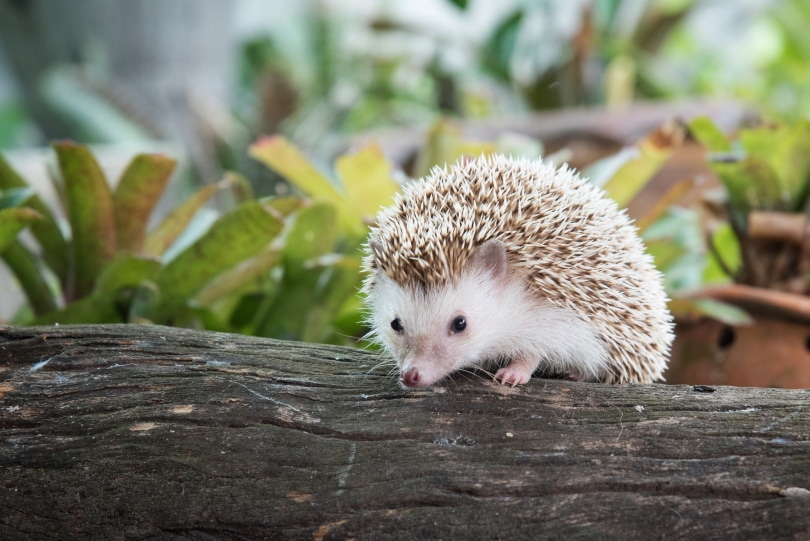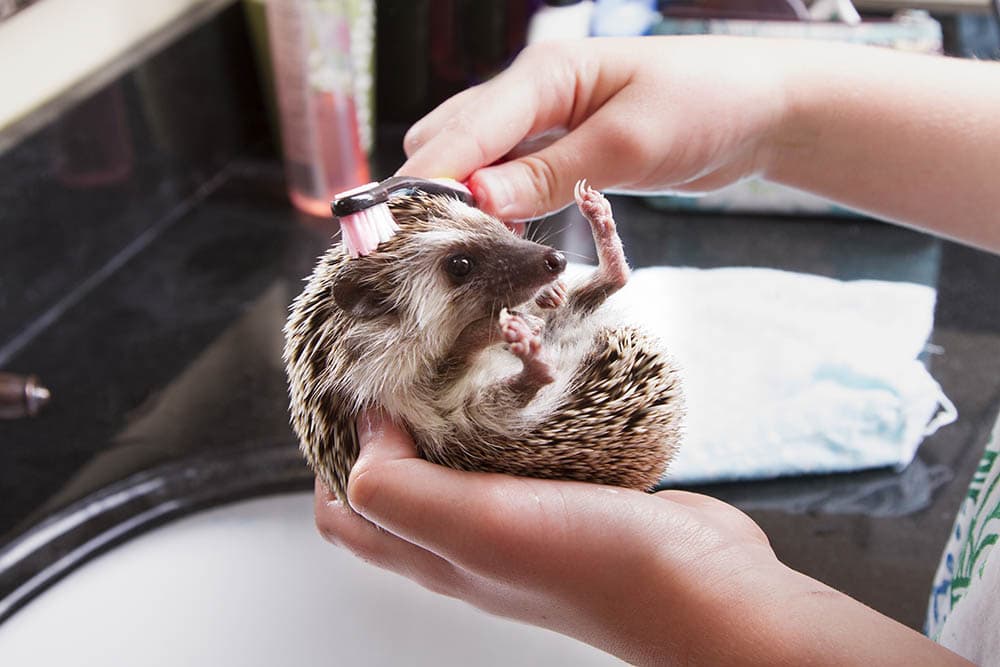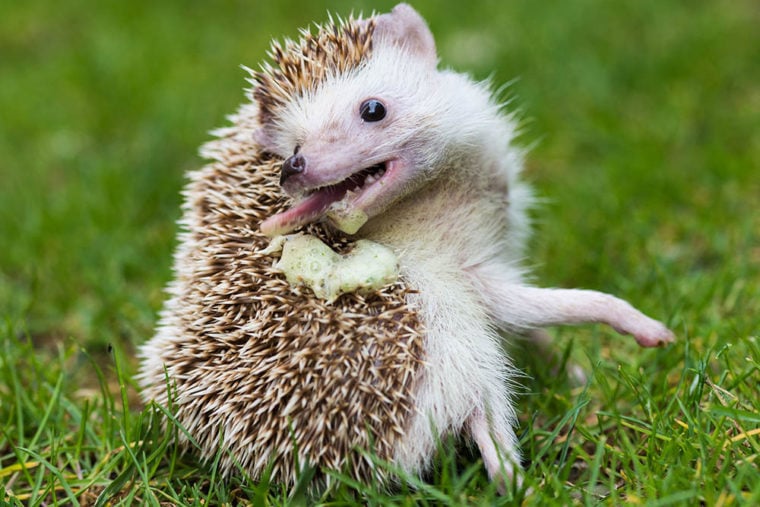
Not only do hedgehogs look unique, but they also have unique and rather inexplicable behaviors, such as self-anointing. If you’re new to the world of hedgie ownership, it’s possible that you haven’t witnessed this bizarre behavior, or perhaps you have just witnessed it for the first time!
Before we get into the whats and whys, we’ll start by saying that it’s nothing to worry about. This is normal behavior that many hedgehogs seem to do from time to time.
What Is Self-Anointing?
This phenomenon usually seems to occur out of the blue. Most hedgies tend to be just doing their hedgehog business when suddenly, they appear to start spitting up froth and then use their tongues to deposit this froth onto their quills.
Hedgehogs will appear to contort themselves into all kinds of positions in order to cover every part of their quills with their spittle.
If this occurs while you’re watching them, you’ll probably be quite alarmed. Some people think that their hedgie might have rabies or is having a fit or seizure. But it’s nothing to worry about. It might not be common but it is normal.
It might appear to go on for quite a while, or it might only last for a few minutes. The only negative aspect of this behavior is that while the hedgehog is self-anointing, they engage in the behavior quite single-mindedly. When in the wild, this can leave them vulnerable to predators.

So, Why Do Hedgehogs Self-Anoint?
No one has a definitive answer to this question. There are several theories floating around, but it’s still somewhat of a mystery. Here are a few of the more popular theories.
Triggered by an Unfamiliar Scent
If you start wearing a new fragrance or cologne, this might trigger your hedgie’s self-anointing.
Oddly, other scents that can potentially bring on the behavior are leather, whiskey, paint, tobacco, varnish, etc. Most of the odors that seem to trigger self-anointing tend to have a taste or smell that is acrid or pungent.
In fact, baby hedgehogs are more likely to self-anoint even more frequently than adults. It’s thought that because they haven’t been exposed to as many scents and tastes yet, they are reacting to unfamiliar smells more often.
However, there have been instances when hedgies self-anoint after coming into contact with distilled water, which doesn’t have much of a discernable smell or taste.
Hedgies have poor eyesight, which makes their other senses — smell, taste, and hearing — much more acute. This could account for hedgies reacting to a strong and unknown scent.
Camouflage
This theory is that when a hedgie smells something new, they use their saliva to cover up their own scent.
It’s theorized that hedgehogs are masking their natural scent to closely resemble the surrounding environment’s odor. Essentially, hedgies are hiding themselves from any potential predators.
Creating a Protective Coating
Hedgehogs are capable of eating certain toxic foods when in the wild, such as poisonous snakes, toads, and frogs. Hedgies have a strong resistance to toxins, and after ingesting these toxic ingredients, many of them will start to self-anoint.
It’s theorized that hedgehogs are spreading semi-toxic foam over their spines as a means to protect themselves from predators or maybe to kill off any parasites hitching a ride.
Other Animals That Self-Anoint
Virtually all species of hedgehogs have been known to self-anoint, but other types of animals also have been observed taking part in this behavior.
The rice-field rat found in Southeast Asia has been observed self-anointing when they catch the scent of a weasel. Spider monkeys in Central and South America have engaged in self-anointing with the leaves of three different plant species, which is thought to be a social behavior.
Self-anointing has also occurred with capuchin and owl monkeys, as well as Siberian chipmunks and lemurs.
Each animal takes part in this behavior for different reasons. Some do it for mating and reproductive purposes and others to eradicate parasites. Many of these animals self-anoint with their own urine, or they use items to accomplish it, such as hedgies, who will sometimes chew on something toxic to produce the foam.
Does Self-Anointing Harm Your Hedgehog?
No. This isn’t a behavior that happens frequently, but it is something that most hedgehogs engage in at some point.
While the process does seem to exhaust them, it appears to be occurring based on instinct. Even if hedgies have been domesticated for several decades now, they, like most domestic animals, sometimes do inexplicable things that are usually based on instinct.
Don’t try to stop your hedgehog from self-anointing. If it helps your hedgie feel healthy and safe, even if it isn’t necessary, it’s best to let them lick away.
Final Thoughts
There’s no question that self-anointing is startling and bizarre when you see your hedgie suddenly start to wildly lick foam over their spines. But it is a perfectly normal and natural response to a new and unfamiliar stimulus.
If you’ve noticed your hedgie self-anointing after you’ve started wearing a new fragrance, you can view it as your hedgehog trying to blend in with your new scent.
Your hedgehog is essentially tapping into a deep instinct, probably from their ancestors, that was perhaps beneficial in the past but doesn’t necessarily serve much of a purpose today.
All domestic pets have unique quirks, and your hedgie is also an adorable bundle of mystery.
See Also:
Featured Image Credit: Andreatop90, Shutterstock



